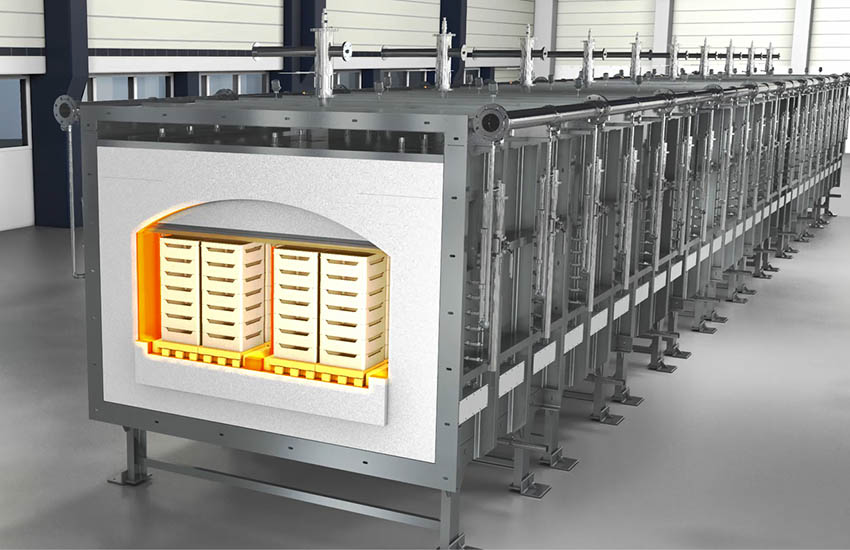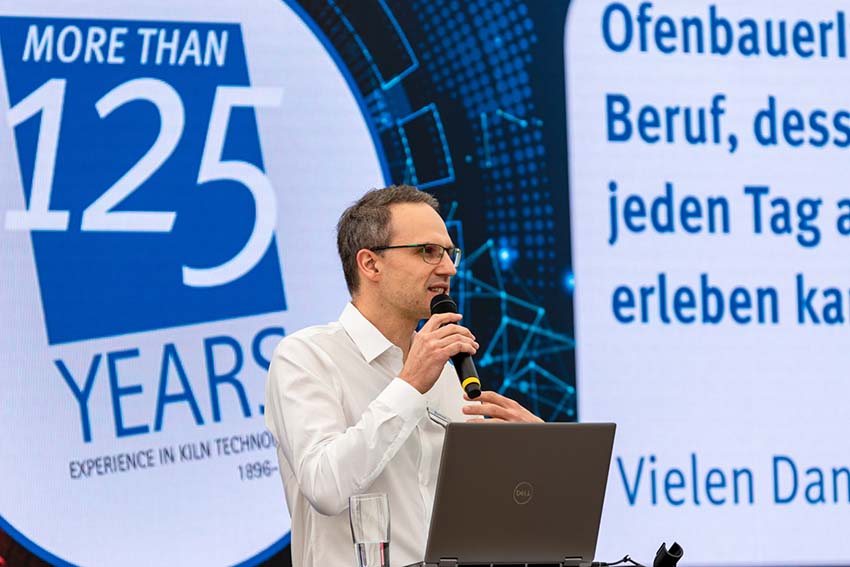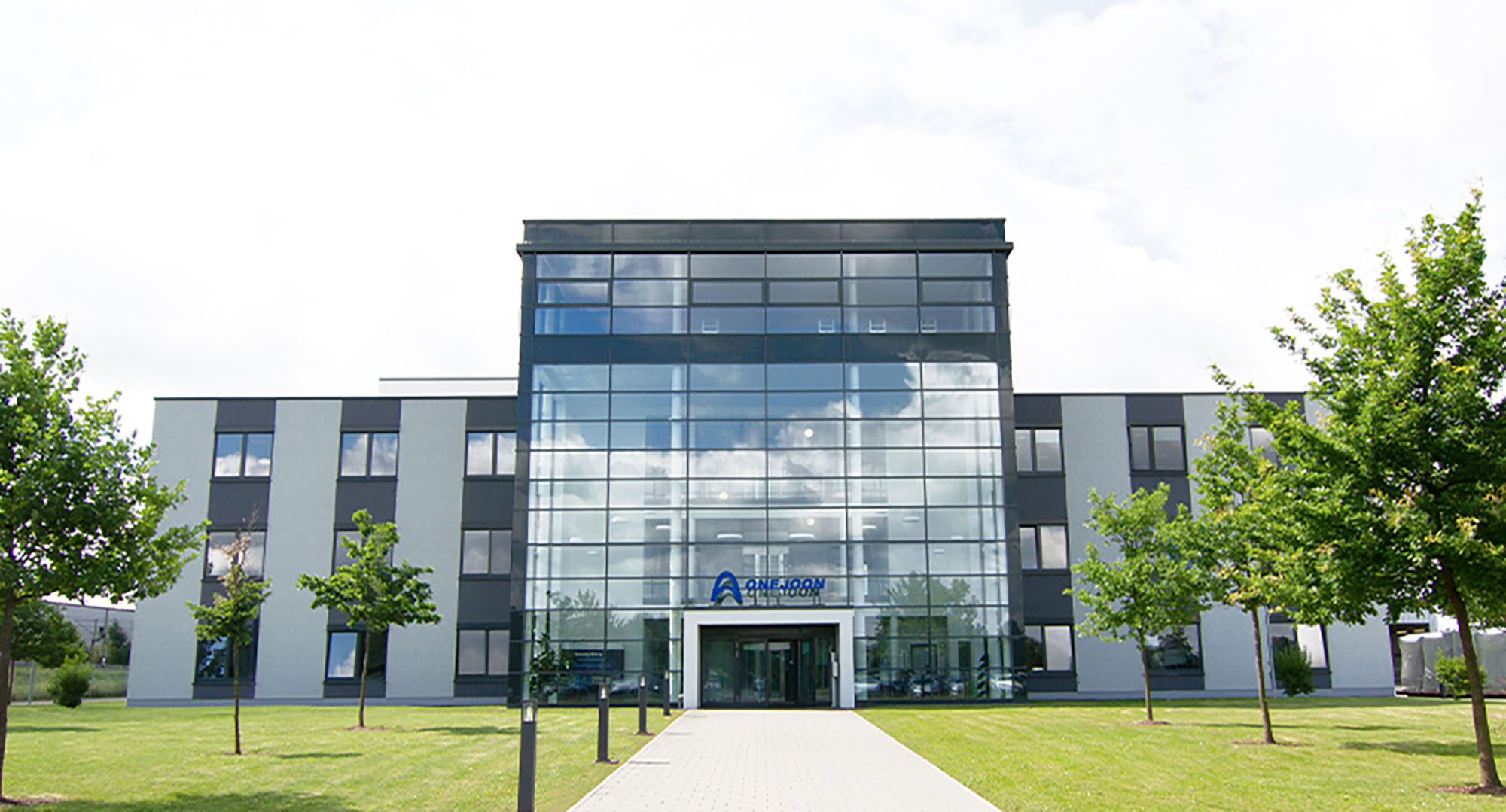ONEJOON is a thermal processing equipment manufacturer with locations in Germany, Korea, China, Poland and the US. The company emploies approximately 300 people worldwide and look back on over 125 years of experience in kiln technology. ONEJOON not only supplies customized furnace technology, but also provides supporting equipment and services as well. This includes the application of automation equipment, material flow expertise, process integration and system optimization.
With two ONEJOON Test Centers in Germany and Korea, they offer customers an ideal environment to have their thermal processes tested and optimized with the help and consultancy of our experts.
Interview with Simon Schurr, Vice President, Advanced Materials & Processes at ONEJOON.
Easy Engineering: What are the main areas of activity of the company?
Simon Schurr: ONEJOON is the technology and market leader for oxidation ovens and carbonization furnaces used in the production of carbon fiber. We have developed a very strong position in the markets for cathode and anode material used in lithium-ion batteries as well. Other key target markets include the hardening of blades and saw bands, sintering of ceramics and fuel cells, heat treatment of aluminum wheels and powder chemistry and advanced materials. In the light of ecological awareness, we also put focus on supplying the technology employed in pyrolysis processes that play a major role in the recycling of old tires, for example.

E.E: What’s the news about new products?
S.S: Innovation is at the core of our business. Thus, we are constantly optimizing our thermal processing technology. Whereas the basic concepts of the furnaces generally stay the same, the applications and specific demands of our customers and markets change. A current issue, for instance, is efficiency and environment protection. Years ago, ONEJOON decided to strongly focus on electrical kilns and furnaces. With the use of regenerative energy, the carbon footprint can be reduced. In order to optimize energy consumption, ONEJOON implemented a series of improvements in process design, inside-kiln airflow and kiln design. A recent example: together with one of our customers we developed the first electrically heated kiln used in the production of brick veneers. In cross-sectoral comparison, the technology applied here saves up to 50 % energy.
E.E: What are the ranges of products?
S.S: We offer a wide range of furnaces and kilns for various applications, e. g. rotary kilns, hybrid kilns, roller hearth kilns or pusher slab kilns. These concepts are customized to the specific needs of our customers. Moreover, we offer full process integration, services and testing facilities. At our ONEJOON Test Center, customers can carry out experiments with the help of our experts to find out which kiln works best for their product and the material they are processing. We provide thermal process optimization and consulting as well as support in the upscaling from lab to fully-fledged production.

E.E: At what stage is the market where you are currently active?
S.S: As we are active in various markets, a general stage is not easy to assess. Each of them is at a different stage. Take the battery market, for example. It bears a lot of potential for the future. The demand for batteries built into electric vehicles will increase and with it the technology to produce those batteries. This is also due to political regulations, such as the ban of cars with combustion engines in the European Union from 2035 onwards.
E.E: What can you tell us about market trends?
S.S: With respect to products, full-electrical systems are certainly trending. This applies to the kiln heating, post-combustion or periphery, for instance. Recycling of all kinds of materials with pyrolysis processes will gain further importance in the future, e. g. the recycling of old tires. The hydrogen industry and the production of fuel cells is on the rise as well. As a company, we also face a growing US market in which we want to engage as actively as possible.
E.E: What are the most innovative products marketed?
S.S: One of our most innovative products is the ultra-high temperature furnace for graphite production. Another example is our pusher kiln for very high throughputs in ceramic production and battery powder calcination. We also provide kilns with special process gases in the battery market and offer single product tracking to improve quality control and production flow.

E.E: What estimations do you have for the rest of 2022?
S.S: The demand for electrical systems is high and our order intake is strong. However, markets stay hardly predictable and producer prices are growing.


